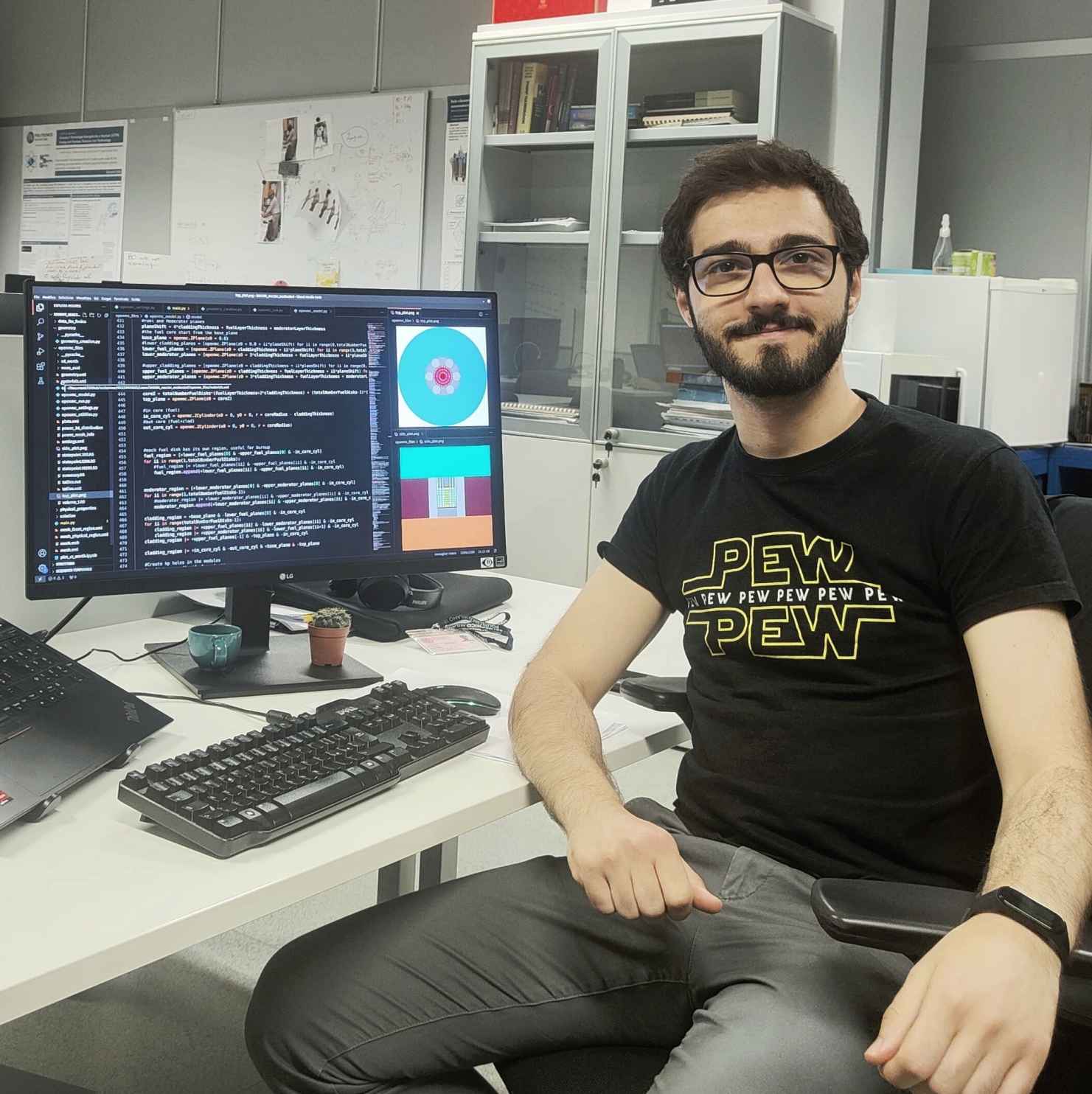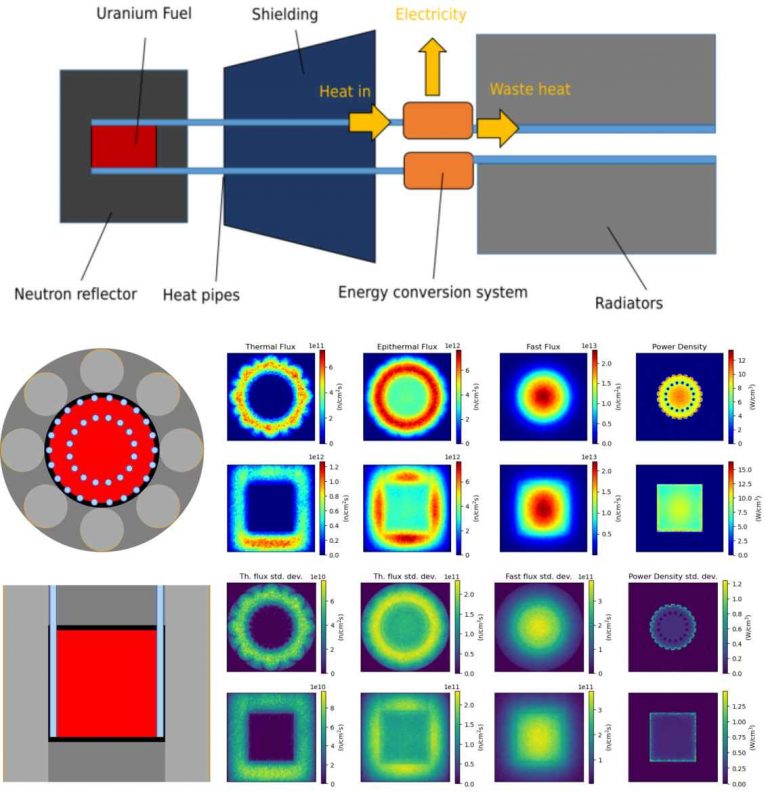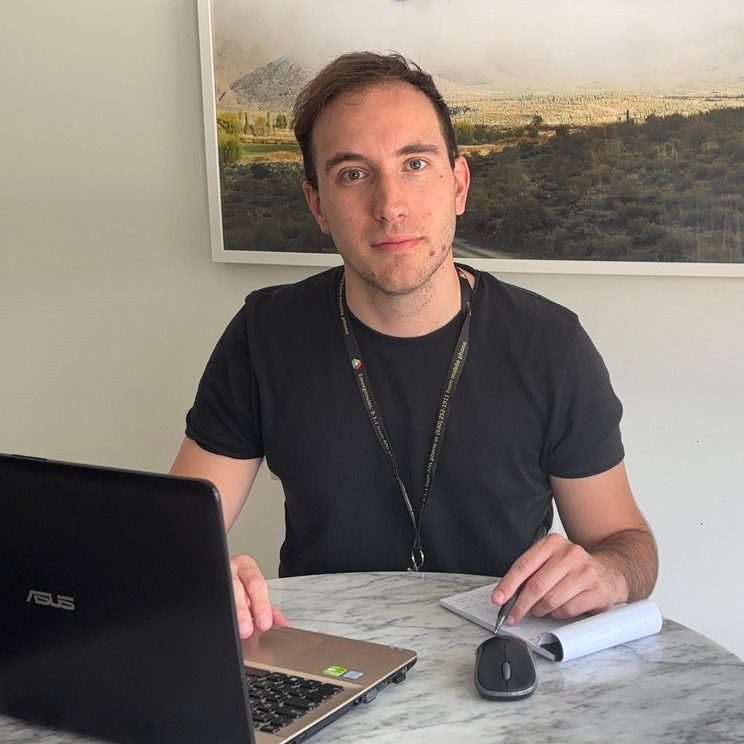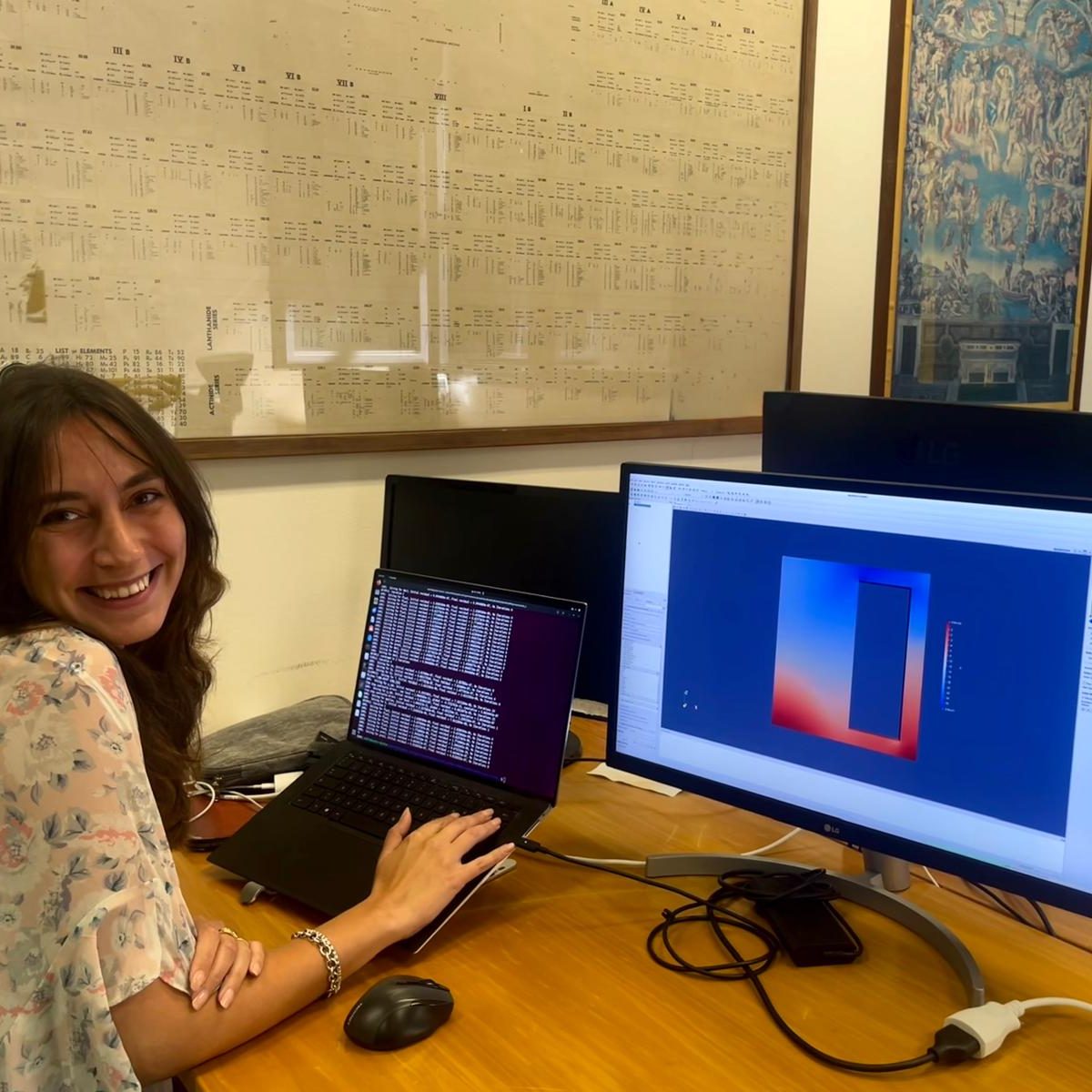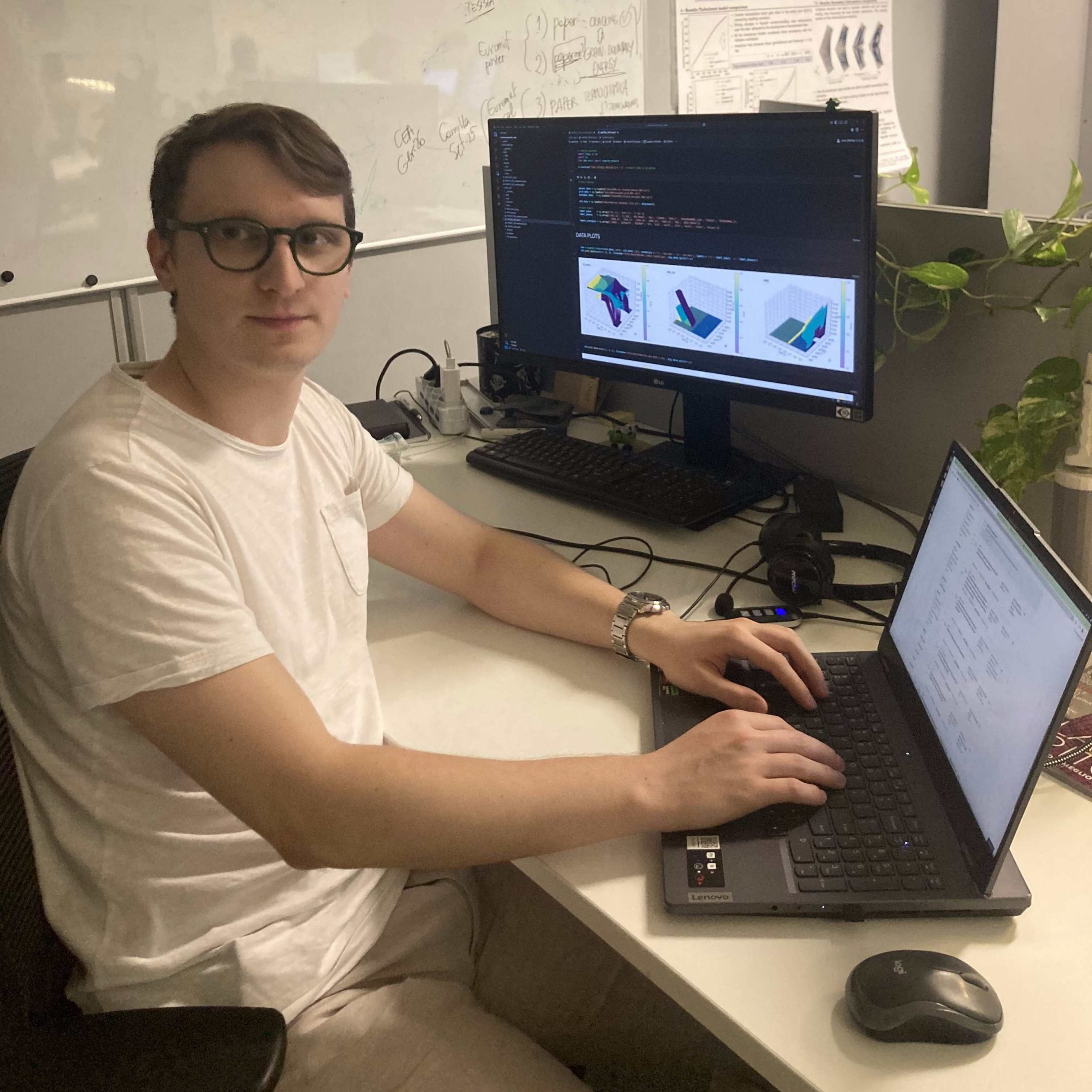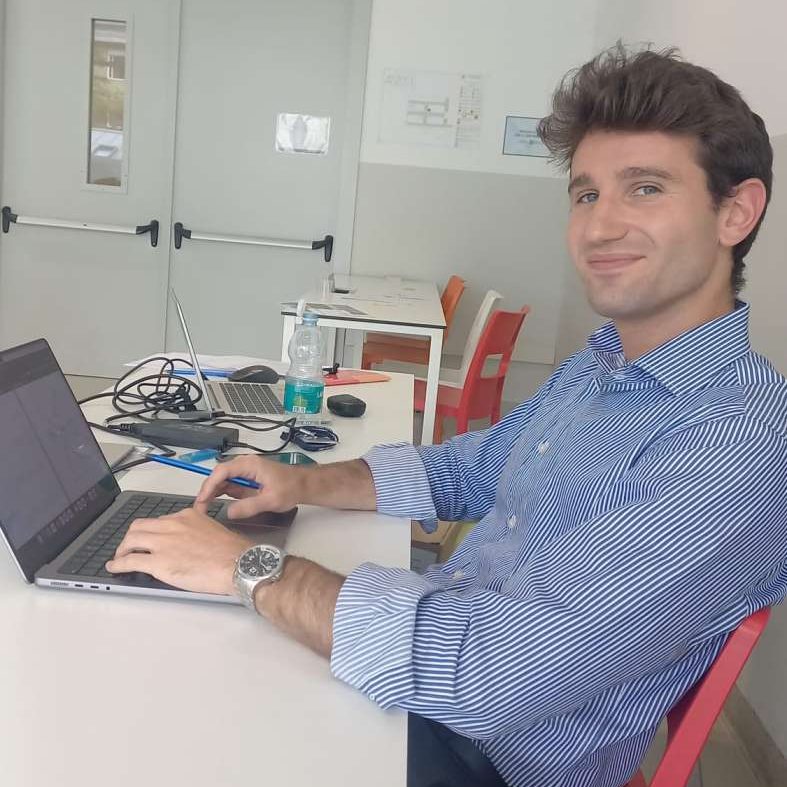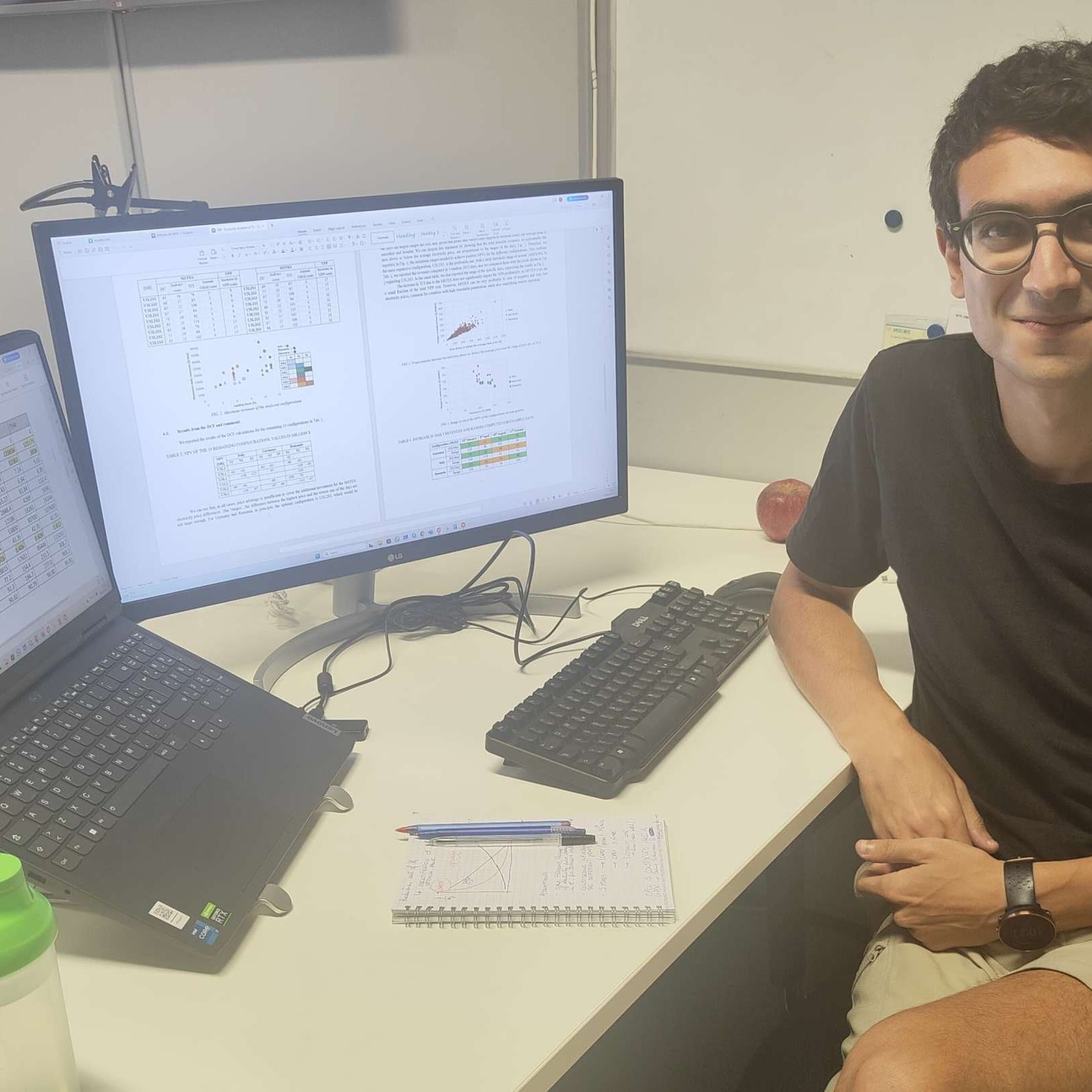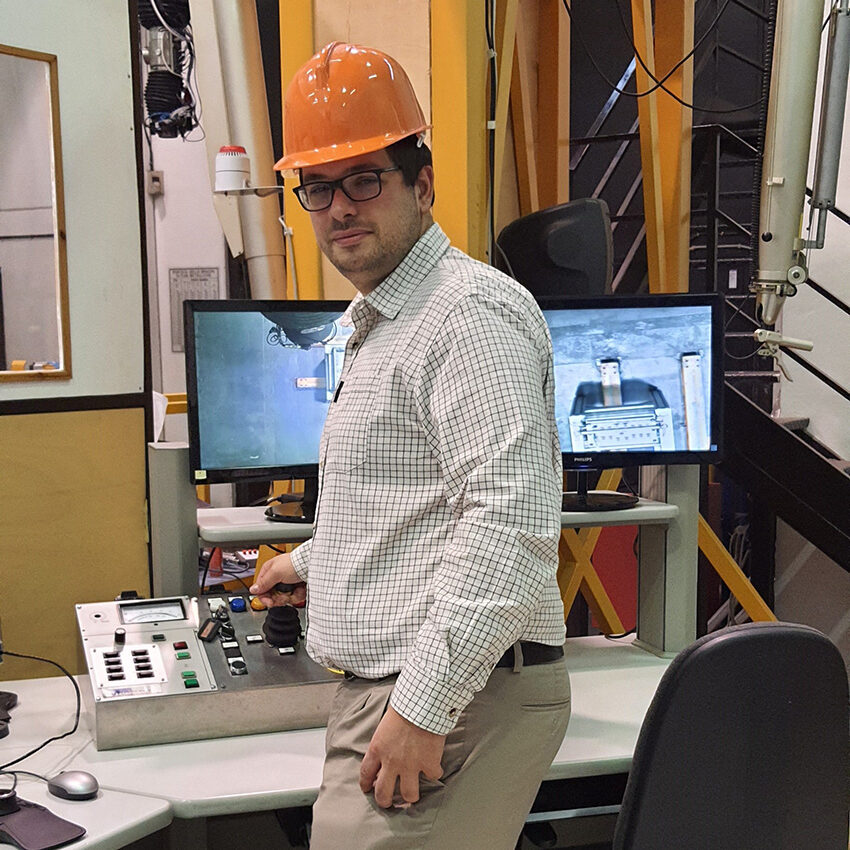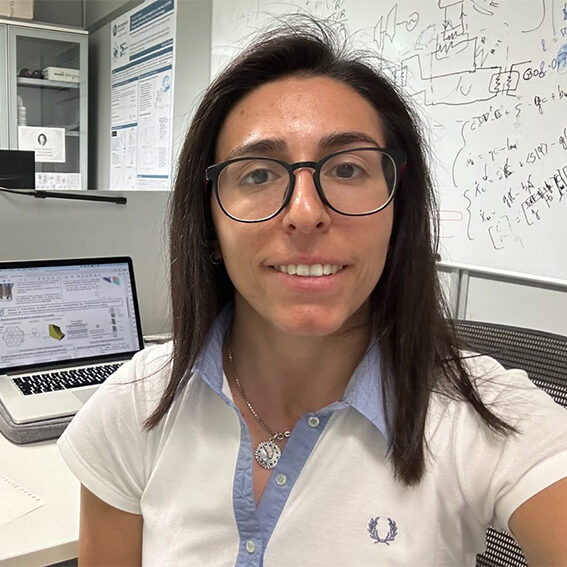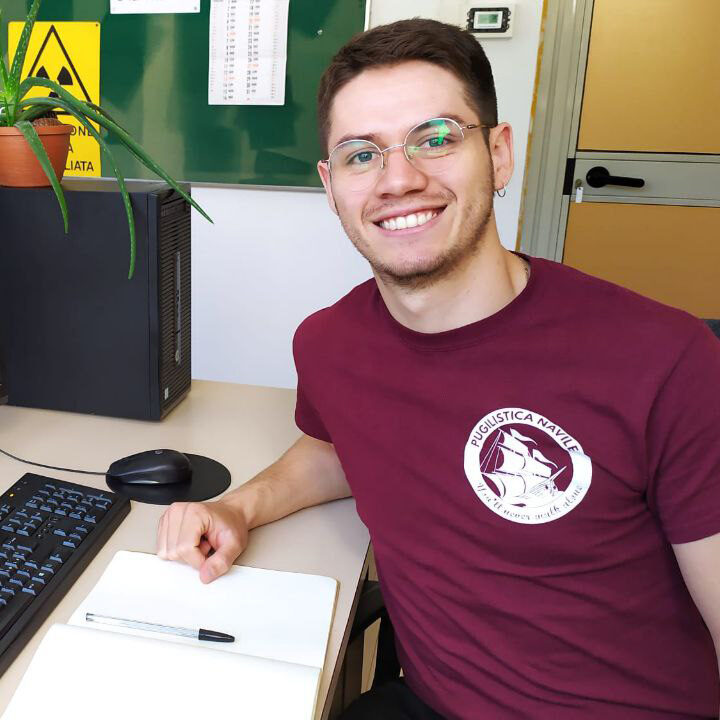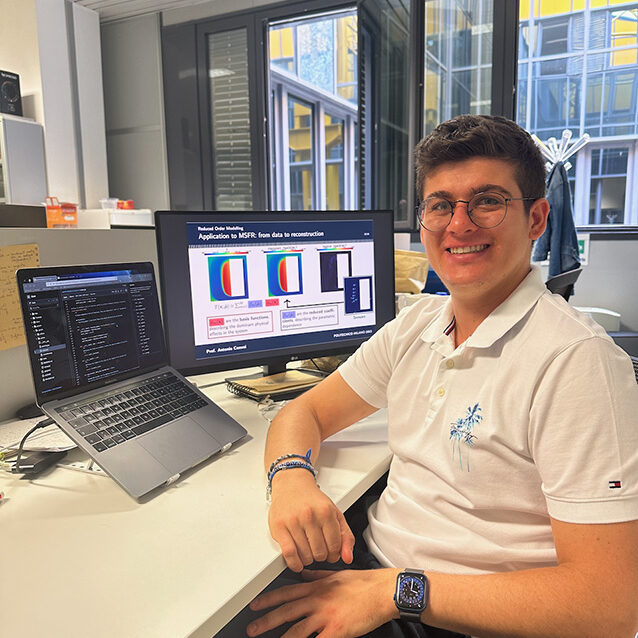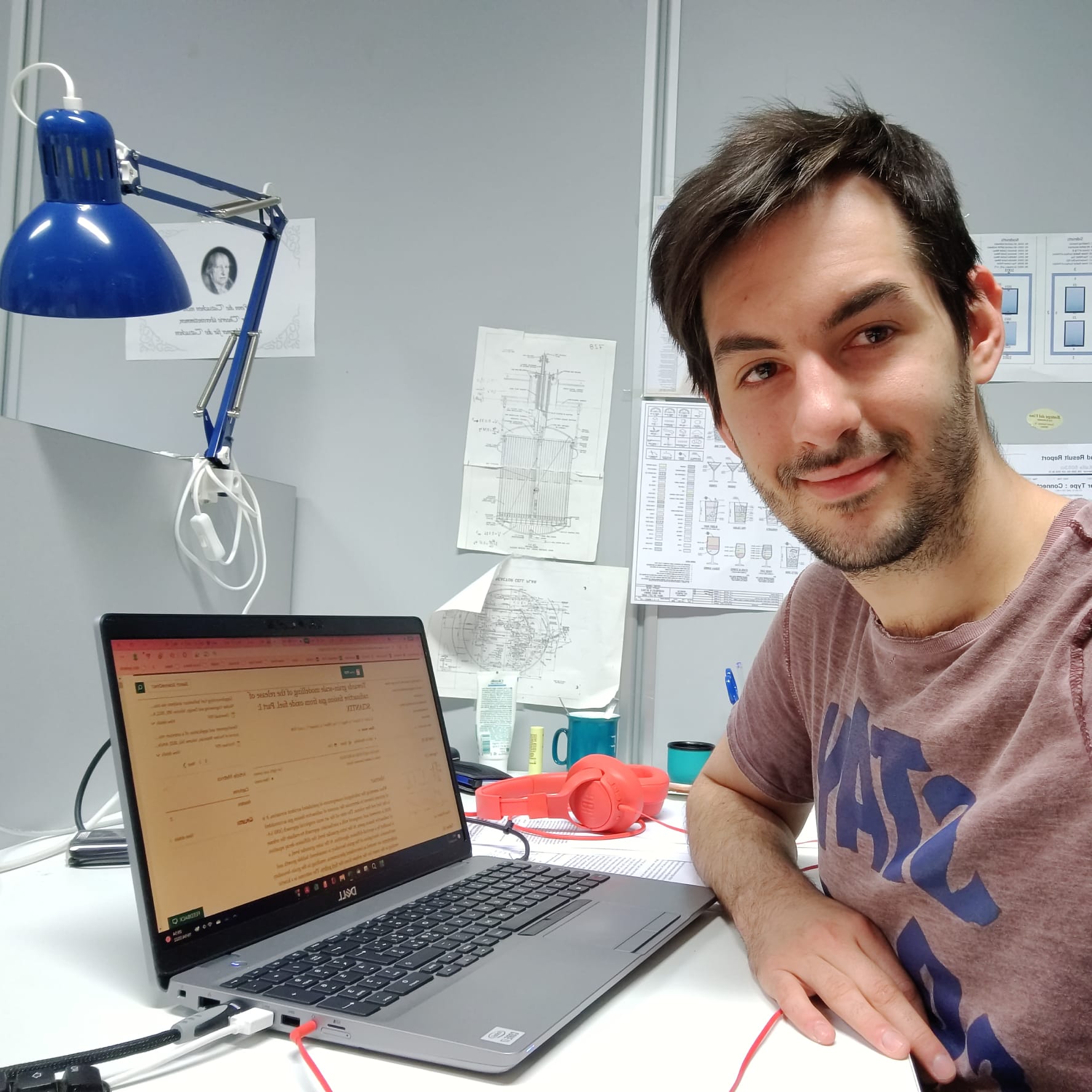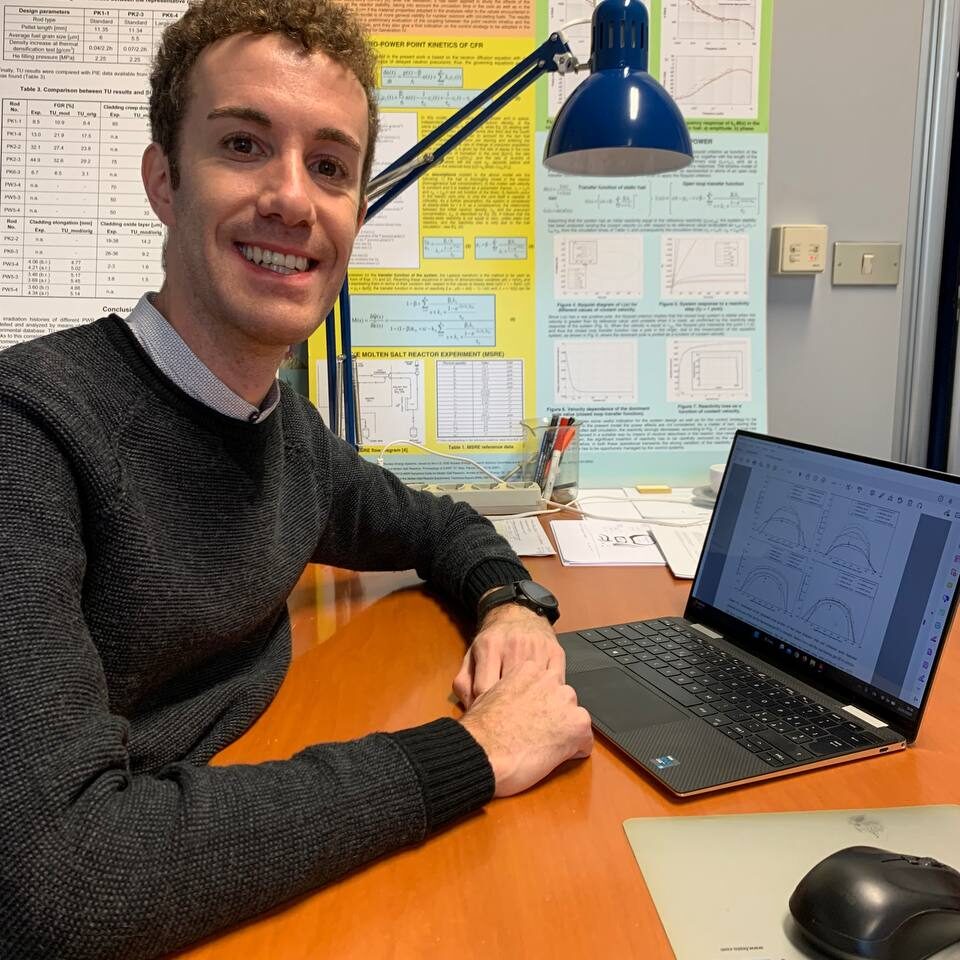Riccardo Boccelli
PhD thesis title: Nuclear Energy Systems for Space Applications
Academic Tutor: Riccardo Mereu
Academic Supervisor: Marco Enrico Ricotti and Stefano Lorenzi
Affiliate external company or research group: Thales Alenia Space Italia
PhD cycle: 38° (see all student profiles of the same cycle > LINK)
BSc: Engineering Physics, Politecnico di Milano
MSc: Nuclear engineering, Politecnico di Milano
Best poster award, NENE conference 2022
Thesis abstract
Through numerical modeling of neutronics and thermal aspects, I explore the thermodynamic performance, material compatibility, and overall system reliability of heat-pipe cooled microreactors. The study evaluates various configurations and materials for heat pipes and reactors to identify the most effective combinations. Additionally, my research investigates the integration of these microreactors with power conversion systems for electric propulsion and energy distribution systems for lunar habitats.
Personal interest in my research theme
The great possibilities and the challenge itself make this research project really interesting to me and never dull.
Designing a space nuclear reactor is both unique and fascinating. It is like being a Star Wars engineer dealing with the construction of the Death Star (hopefully Luke Skywalker will not blow it up this time). The best part? no Darth Vader breathing down your neck.
